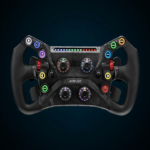Chromebooks have emerged as versatile devices, offering an array of functionalities beyond conventional web browsing. One such feature, Developer Mode, empowers users with deeper access to the Chrome operating system (Chrome OS), enabling them to customize, experiment, and even install alternative operating systems. In this article, we delve into the intricacies of Developer Mode on Chromebooks, unlocking its potential for enthusiasts and developers alike.
Table of Contents
ToggleUnderstanding Developer Mode
Developer Mode is a special mode in Chrome OS designed primarily for developers, enthusiasts, and advanced users seeking more control over their Chromebook. Unlike the standard user mode, which prioritizes stability and security, Developer Mode opens up the device for tinkering and experimentation.
Enabling Developer Mode
Enabling Developer Mode is a straightforward process but requires careful consideration as it involves disabling certain security features. Typically, users activate Developer Mode by pressing a specific key combination during boot-up, followed by confirmation to proceed. Once enabled, the Chromebook reboots into Developer Mode, displaying a warning screen indicating the change in the system’s security status.
Benefits of Developer Mode
Access to Linux Shell
Developer Mode grants users access to a Linux shell, opening avenues for running various Linux-based applications and development tools directly on the Chromebook. This capability expands the device’s functionality, particularly for software development and system administration tasks.
Custom Firmware and Bootloade
With Developer Mode, users can install custom firmware and bootloaders, enabling them to dual-boot alternative operating systems such as Ubuntu or GalliumOS alongside Chrome OS. This flexibility allows for a more personalized computing experience tailored to specific needs.
Debugging and Troubleshooting
Developers appreciate Developer Mode for its debugging features, facilitating the identification and resolution of software issues. The ability to access system logs and diagnostic tools directly from the Linux shell streamlines the debugging process, enhancing productivity and efficiency.
Experimentation and Learning
Developer Mode encourages experimentation and learning by providing a sandbox environment where users can explore advanced concepts in software development, system administration, and cybersecurity. This hands-on approach fosters skill development and fosters a deeper understanding of computing principles.
Precautions and Considerations
While Developer Mode offers unparalleled freedom and flexibility, users should exercise caution and be aware of potential risks:
Security Implications
Disabling certain security features in Developer Mode may expose the device to greater security risks, including malware and unauthorized access. Users should be mindful of these implications and take appropriate precautions to mitigate potential threats.
Warranty Voiding
Enabling Developer Mode typically voids the device’s warranty, as it involves modifying the Chromebook’s firmware and system settings. Users should weigh the benefits against the warranty implications before proceeding.
Data Loss
Switching to Developer Mode initiates a powerwash, erasing all locally stored data on the Chromebook. Users should backup important files and data before enabling Developer Mode to prevent data loss.
Conclusion
Developer Mode on Chromebooks unlocks a realm of possibilities for enthusiasts, developers, and advanced users seeking to push the boundaries of their devices. From running Linux applications to customizing firmware and exploring alternative operating systems, Developer Mode empowers users with unprecedented control and flexibility. However, it’s essential to approach Developer Mode with caution, considering the security implications and warranty concerns. With proper understanding and precautions, Developer Mode can serve as a gateway to endless exploration and innovation in the Chromebook ecosystem.









